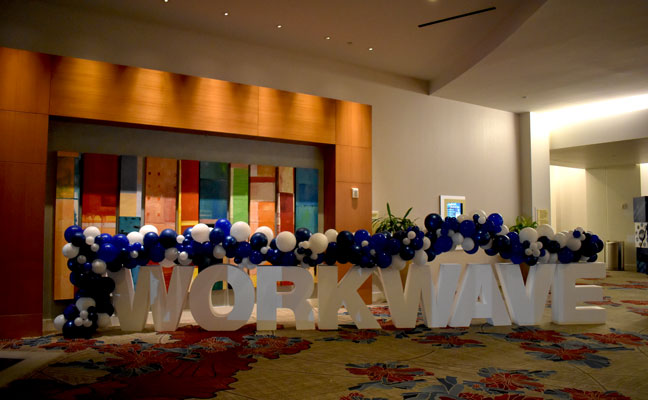
The welcome sign going into the WorkWave Beyond Service 24 in Orlando, Fla. PHOTO: PMP STAFF
The third annual WorkWave user conference, Beyond Service 24, kicked off Sunday with a welcome reception at Hilton Orlando in Orlando, Fla.
The reception included live music, a photo booth, food and a chance to meet attendees before sessions began on Monday morning.
The three day event is a chance for attendees who work in pest control; lawn care; heating, ventilation and air conditioning; and other asset-based field service companies to learn more about WorkWave, its software and how it can benefit companies. It’s also an opportunity for attendees to network with fellow software users within their industries.
Monday at Beyond Service 24
David Giannetto, CEO of WorkWave, kicked off the conference Monday morning with his executive keynote address. He shared how WorkWave and the conference have grown over the past three years. Giannetto said this year’s conference is a starting point to move into the next phase of what WorkWave will become.
“This year’s Beyond Service conference represents the largest and perhaps most importantly, the most diverse gathering of service professionals of any event in our collective industries,” Giannetto said.
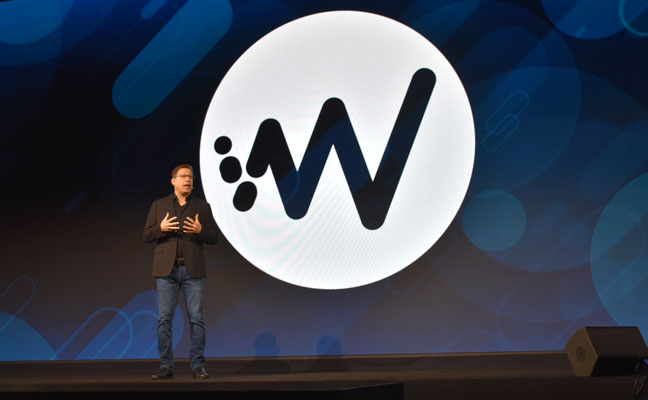
WorkWave CEO David Giannetto kicked off Monday’s sessions with his keynote speech. PHOTO: PMP STAFF
David Ittner, chief technology officer of WorkWave, presented examples of how WorkWave services have changed and been redesigned for a more modern look.
Ittner said there have been many advancements in artificial intelligence (AI) in 2023 from companies such as Microsoft, Google and more.
“WorkWave sees the huge potential in generative AI,” Ittner said.
In 2023, WorkWave expanded its AI program to explore generative AI technology more broadly to help productivity within the WorkWave company and also in the products its customers use.
Ittner said the key themes for WorkWave going into 2024 include cloud infrastructure; modernization; and scale, performance and stability. These themes will help enable greater performance operations and modernize the software to make it more user friendly and help its users’ companies continue to grow, he added.
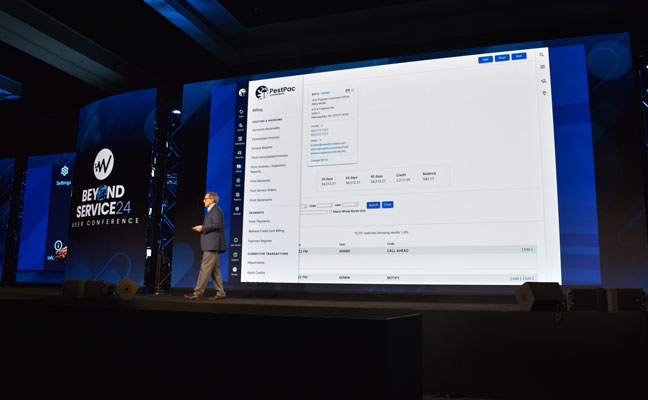
David Ittner, chief technology officer of WorkWave, shared examples of WorkWave’s modernized look for its users. PHOTO: PMP STAFF
To wrap up the morning keynote, WorkWave Chief Customer Experience Officer (CCEO) Jill Davie and WorkWave COO Joseph Pascaretta led the panel titled “Riding the Wave: Navigating Challenges and Celebrating Wins” to discuss navigating challenges and celebrating wins with five industry leaders.
Panelists included Casey Taylor, CEO of Senske; Mike Mansour, operations manager for 4everGreen; Stephanie Marcial, operations manager for Price Air Conditioning & Appliance; Nate Woolf, president and co-owner of BlueSky Pest; and Tiffany Woodley, CFO of Woodley Building Management.
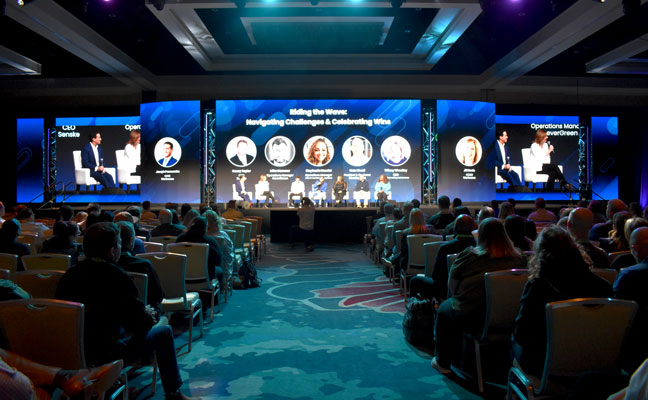
From left: Joseph Pascaretta, Jill Davie, Casey Taylor, Mike Mansour, Stephanie Marcial, Nate Woolf, and Tiffany Woodley during the panel “Riding the Wave: Navigating Challenges and Celebrating Wins.” PHOTO: PMP STAFF
Many of the sessions engaged attendees on best practices for using WorkWave’s software for the various industries. Other topics included fostering women in the industry; AI; and hiring, retaining and firing employees.
In the session “Fostering the Advancement and Inclusion of Women in the Field Service Industry,” Davie moderated the panel that included Sharon Roebuck-McBride, senior executive vice president of Triangle Home Services; Sandi Mitchell, branch manager at Lawn Pride; and Jenny Schoenfeld, COO of ACT Security Group.
Roebuck-McBride said she accidentally fell into a career in the pest control industry. Throughout her career, she has learned that the industry is based on people, which is the main reason she has stayed in the pest control industry.
Roebuck-McBride is an advocate for women in the industry, adding that women in the industry helps to open the door for open for more diversity in a company overall.
“Women are just the tip of the spear to open that door,” Roebuck-McBride said, adding that the more diverse your company becomes, the more it can grow.
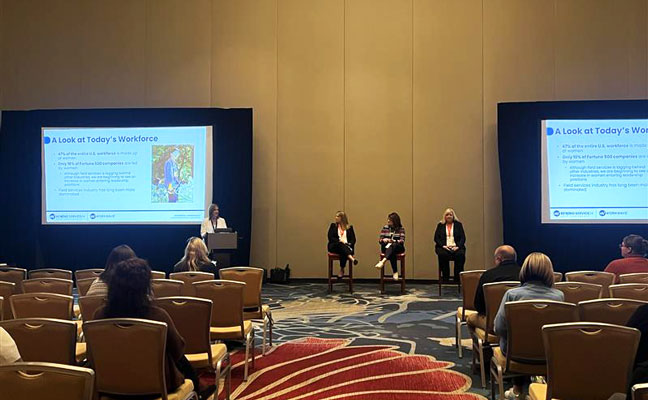
From left: Jill Davie, Jenny Schoenfeld, Sandi Mitchell and Sharon Roebuck-McBride talk about women in the field services industry. PHOTO: PMP STAFF
Katie McCaskill, director of client success at Coalmarch by WorkWave, led “5 Action-Packed Ways to Use AI to Improve Your Home Service Business Operations.” The topic of AI was brought back to this year’s conference after it a popular topic at the conference in 2023, and since AI is rapidly changing and being adopted by companies.
Here are some highlights from the session on ways to use AI in your company:
- Resume screening. An AI tool, like Breezy, can screen resumes to see what candidates best match your company and also rank the candidates during resume screening to see what candidates best line up with your company. AI can also be used to write job descriptions that include roles, certification, experience and expectations in a professional and welcoming way.
- Interviewing and hiring. AI can create interview questions, do initial interviews with candidates to see if they match what your company is looking for, and to take notes during a meeting so the interviewer can focus on the interviewee or give the notes to another person in the company.
- Training. AI can generate training materials by searching your industry. Others can analyze call data and customer interactions to general call scripts for you company to use.
- Customer service. Reduce customer service calls to your office by adding AI Chatbots to your company’s website for customer communication. It will also increase your company’s customers service and availability of your employees. Customer surveys created by AI can also find out if there are problems or patterns within your company.
- Business operations. AI can analyze customers area service addresses and previous routes to create more efficient routes as well as dynamic planning to make the most of employee schedules. It can also monitor the condition of equipment so it can anticipate potential maintenance issues before it occurs.
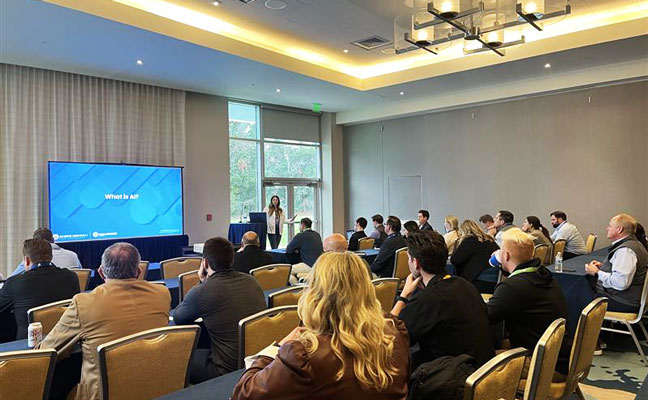
Katie McCaskill, director of client success at Coalmarch by WorkWave, presents on how AI can help your business. PHOTO: PMP STAFF
Chris Anderson, vice president of sales for Applause, led the session “Do’s and Don’ts of Hiring, Retaining, and Firing.”
Anderson highlighted Title VII, the federal laws that protect certain classes such as race, religion, gender, disability, and more. He gave examples under some of these instances that a person cannot be asked about in a hiring process or as a reason to fire someone.
He said it’s important to hire slow to make sure your company is hiring the right person for the role. Hiring fast out of need can lead to having someone who doesn’t fit the role.
“An ounce of prevention is worth a pound of cure in the future,” Anderson said. He added that one bad employee can drag down your best employees, which is why companies should also fire fast instead of trying to make amends because the bad employee will still be bringing down the rest of your team.
Promoting fast also helps retain employees because they will be able to see a clear path to success and rewards, and be able to reach the next level in their careers.
When hiring, Anderson said companies should use a hiring scorecard to measure from candidate-to-candidate. Employers should also prepare interview questions that give different workplace scenarios, and check the applicants’ references.
Legal components of interviewing candidates include:
- Don’t make unintended promises.
- Keep all records for one year.
- Questions cannot be used to disclose information regarding a protected class.
- Never make gratuitous notes during the interview. Notes can be used against you if someone sues.
Anderson said 66 percent of employees say they leave due to lack of appreciation. Employees want to receive performance rewards through recognition and more money to stay at a job. Performance improvement plans (PIPs) also can help companies discuss expectations with employees. PIP discussions should include areas of improvement, expectations, potential consequences and a date for the next meeting to follow up.
When firing employees, maintain as much dignity as possible for the employee being fired. There should be a witness in the room, but don’t team up on the person. Management should always do the firing, but having a member of human resources with you can help with logistical questions, Anderson said.
He said to keep the termination short and sweet, but not too sweet, while outlining that expectations weren’t met. Don’t give termination letter and have a plan to explain their last paycheck.
Plan an exit strategy for how the person will leave after they are fired and clearly communicate to the rest of your team that they no longer work at the company.
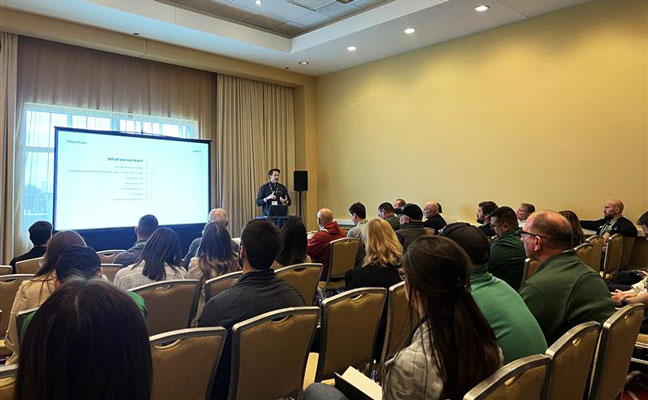
Chris Anderson, vice president of sales for Applause, hosted a session about hiring, retaining and firing employees. PHOTO: PMP STAFF
Tuesday at Beyond Service 24
David Avrin, CSP, president of The Customer Experience Advantage and author, kicked off Tuesday of the Beyond Service 24 conference as the Guest Keynote discussing “Outperforming Expectations with Engagement in Field Service.”
He discussed how the field service business has changed in recent years due to the generation of wanting things instantly and the COVID pandemic.
Avrin recommended adjusting the way your company does business to make it more convenient to work with and make it customer centric.
Avrin said companies should become ridiculously easy to do business with from the customer standpoint since customers are looking for a convenient experience.
“Things we accepted 10 years ago are frustrating today,” Avrin said.
To simplify your company’s process, take a step back, look at things you design and make it simple. Avrin said don’t teach customers the process of how you do things. People want help getting what they want quickly.
Avrin also advised to accommodate customers as best as possible, even when you can’t. Although not everything you expect is going to transpire, don’t be rigid and follow a script. Listen to customers’ problems to help them get a result as close as possible to what they are looking for.
“If there is a special accommodation you can do, do it,” Avrin said. “Customers love that.”
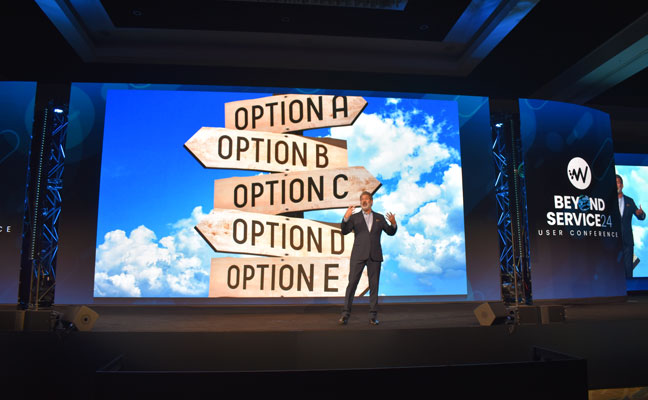
David Avrin, CSP, talks during his keynote on Tuesday called “Outperforming Expectations with Engagement in Field Service.” PHOTO: PMP STAFF
Taylor Olsen, CEO and co-founder of Applause, discussed how to use incentives to help your company reach its goals in “Unlocking the Power of Employee Incentives.”
Incentives for employees can be financial, such as commission or raise, or recognition, such as shoutout or preferred schedules.
Olsen discussed ineffective incentives:
- Unreachable incentives. Creating goals that your team cannot reach. Olsen said you want to push your team but not put the goals far out of reach.
- Too complicated. There are too many ways to meet a goal, people end up forgetting the steps and doing what works for them to reach the final goal.
- Too far removed from behavior. Creating an incentive that doesn’t match how employees’ work.
- No follow-ups. Olsen said if a leader can’t follow-up weekly with an incentive, it shouldn’t be set. Employees need to remember incentives and how they should be working toward the company’s goals.
- Not meaningful. Employees appreciate incentives that have a result they can use. Olsen gave an example of using gift cards for various restaurants and activities as rewards, but employees ended up picking Amazon or Visa gift cards 95 percent of the time to use for groceries and gas.
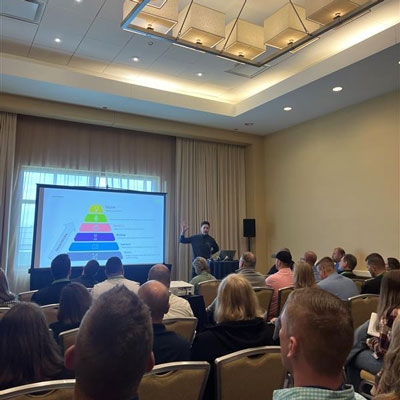
Taylor Olsen discussed different incentives companies can use for its employees. PHOTO: PMP STAFF
Josh Petro, director of product for WorkWave, discussed the state of the hiring market and how to hire and retain the right employees in “Solving the Labor Challenge.”
“Solving the labor problem is pretty easy: Attract the right people and retain the right people,” Petro joked, saying it was a lot easier said than done.
The current state of the U.S. labor shortage features more job openings but fewer employees available to hire. The current unemployment rate is at 3.8 percent, rising over the past two months of the year. According to the U.S. Chamber of Commerce, if every unemployed person was hired, 3.5 million positions would still be open.
This labor shortage in the U.S. won’t return to pre-pandemic levels any time soon due to an aging workforce, low birth rate, decrease in immigration, lack of childcare and continued economic growth.
The state of the labor workforce shows people are leaving jobs due to lack of flexibility of when to work. Or, people aren’t getting enough hours to work. People who are voluntary leaving the workforce are largely from the younger generation. Working age men aged 25 to 54 show an increase in unemployment. Between World War II and 1960, about 6 percent of men were unemployed. In 2022, that number was 12 percent, Petro said.
Attendees in this educational session discussed the challenges their companies face, such as no shows after people are hired, as well as incentives to help retain employees, such as early access to paychecks and the ability to withdraw funds before payday.
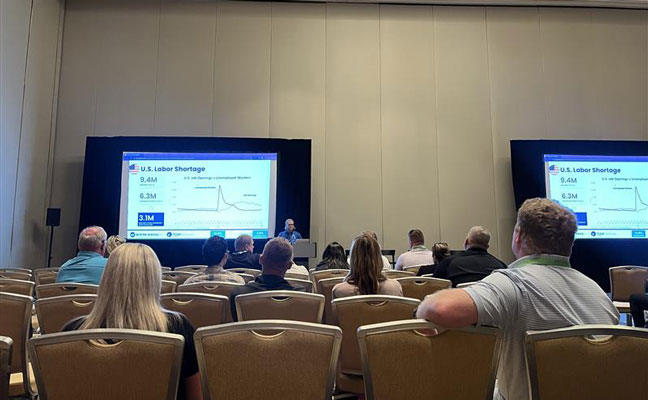
Josh Petro shares the state of the hiring market in his session. PHOTO: PMP STAFF
On Tuesday evening, WorkWave hosted the 2024 Beyond Service Awards.

Certus was awarded Outperform Award for PestPac. PHOTO: PMP STAFF
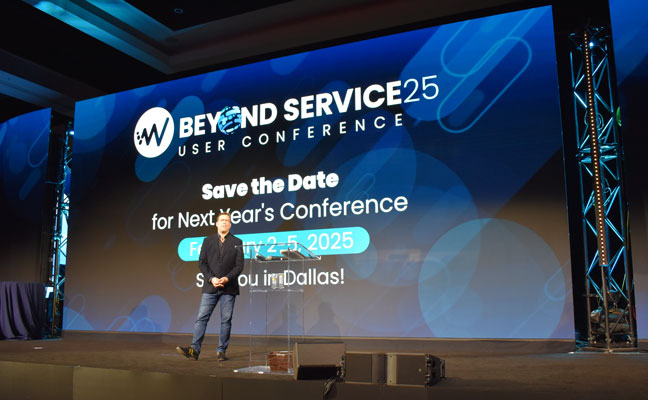
David Giannetto announced that next year’s conference Beyond Service 25 will be Feb. 2-5, 2025, in Dallas, Texas. PHOTO: PMP STAFF
More WorkWave Beyond Service 24 highlights
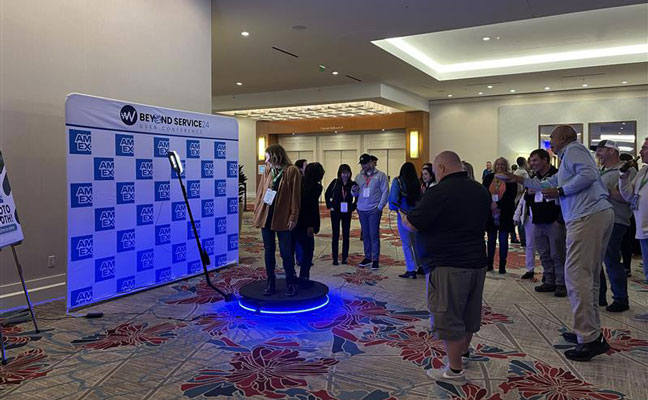
The welcome reception on Sunday featured an interactive photo booth for attendees. The welcome reception on Sunday featured live music. PHOTO: PMP STAFF

The welcome reception on Sunday also featured live music. PHOTO: PMP STAFF

For fans of “Ted Lasso,” WorkWave CEO David Giannetto was edited into the show’s theme song. PHOTO: PMP STAFF
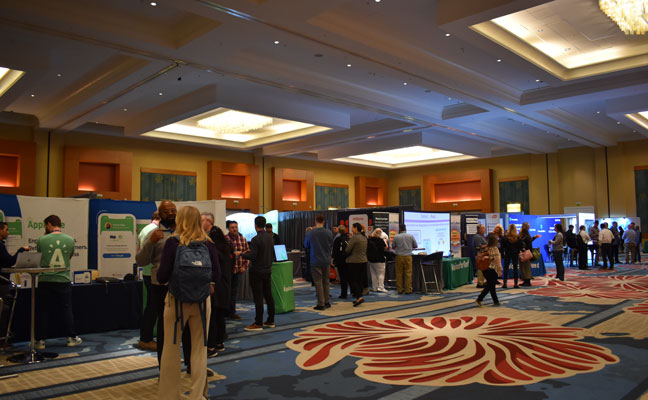
Between sessions, attendees can check out products and services at booths from advertisers of the conference. PHOTO: PMP STAFF
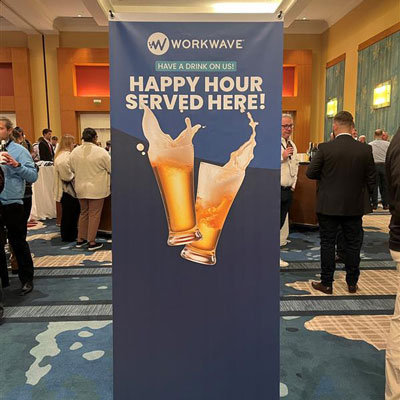
Happy hour kicked off Monday evening after a full day of sessions. PHOTO: PMP STAFF
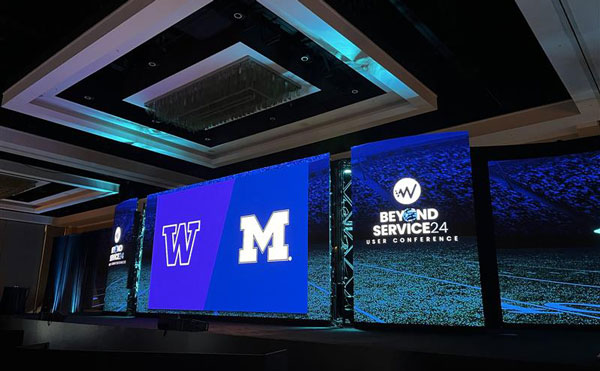
WorkWave hosted a tailgate to watch the NCAA College Championship game of Washington State versus Michigan. The event was sponsored by Wisetack. PHOTO: PMP STAFF
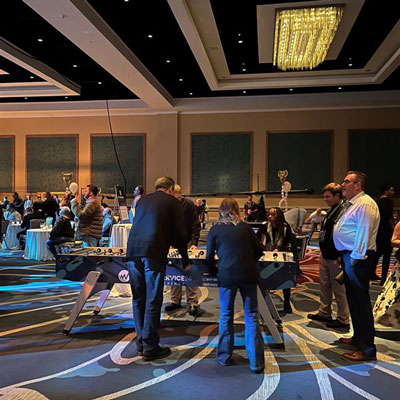
Attendees also had the chance to compete for prizes playing ping pong, pool, air hockey and fooseball during the watch party. PHOTO: PMP STAFF
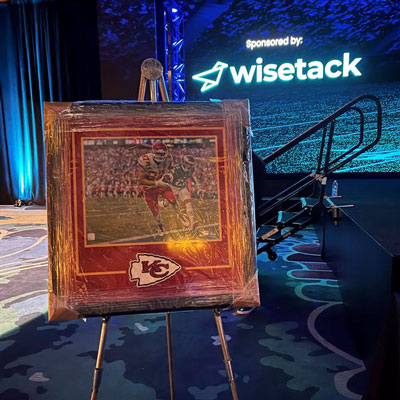
One of the prizes of the night was a signed photo of Travis Kelce, Kansas City Chiefs’ tight end. PHOTO: PMP STAFF
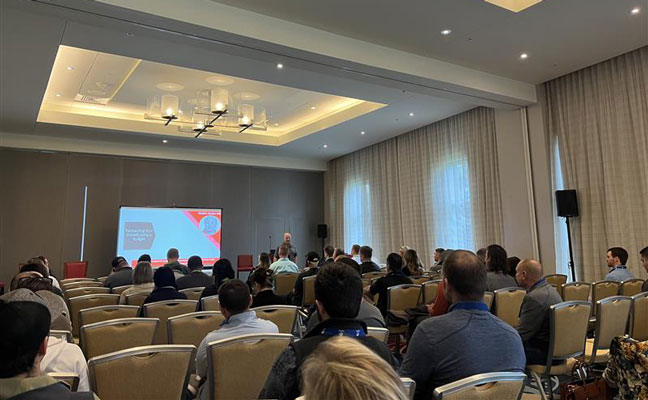
Dan Gordon, CPA, Pest Management Professional’s financial columnist and owner of PCO Bookkeepers & M&A Specialists, presents “Financial Forecasting & Budgeting.” PHOTO: PMP STAFF

Attendees gathered for the annual awards dinner Tuesday evening. PHOTO: PMP STAFF
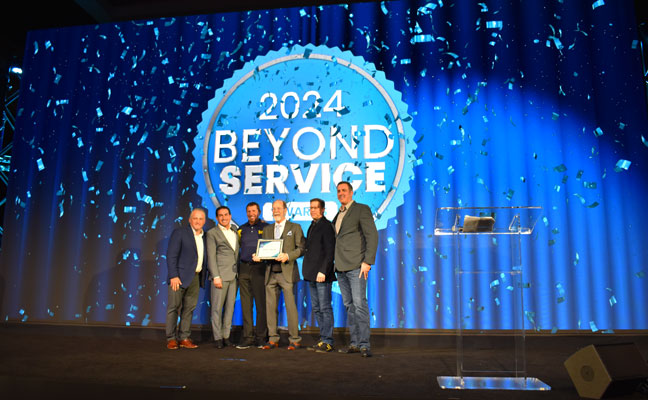
Phil Catron, founder of NaturaLawn of America, received the first Trailblazer of the Year Award. PHOTO: PMP STAFF
Leave A Comment